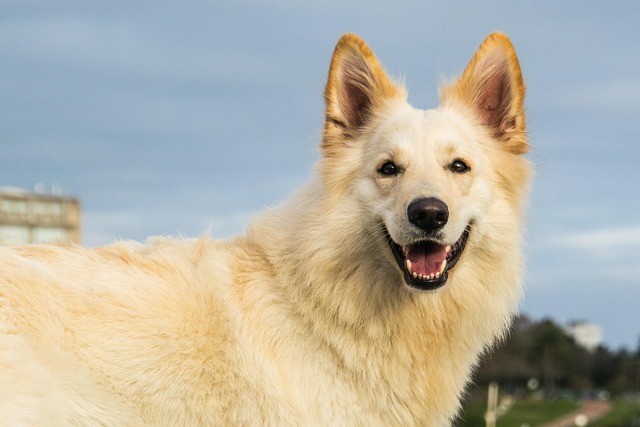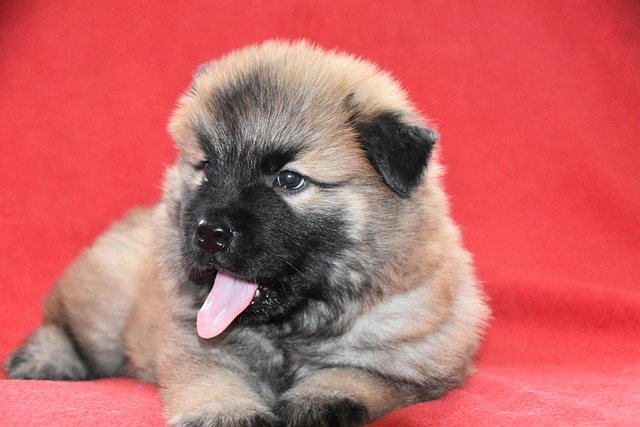
How to toilet train a springer spaniel puppy?
When a fluffy springer spaniel puppy stumbles into the house on unsteady little paws, it brings not only endless joy but also growth tasks that require patient guidance.
Dogs fill every corner of our lives with all their enthusiasm and loyalty. The moment they wag their tails to welcome us home can dispel all our fatigue; the warmth of them snuggling beside us gives us endless comfort. Precisely because of this, the health condition of our dogs always tugs at our hearts. The liver, this "unsung hero" that silently performs multiple key functions in a dog's body, once it malfunctions, will pose a severe challenge to the dog's health. Understanding the signs when a dog has liver problems is an important step for us to provide them with attentive care.
The mental state is a mirror of a dog's liver health. The furry friend that used to be full of energy, jumping up and down at home and always curious about new toys will seem like a completely different dog if there is something wrong with its liver. It no longer actively comes to you asking for pets and play. Instead, it often curls up alone in a quiet corner, and the light in its eyes dims a lot. When you call its name, it may just lift its head feebly and then lie down again to rest. The reason behind this is that after the liver function is damaged, the body's metabolic rhythm is disrupted, and a large amount of toxins accumulate in the body, making the dog feel uncomfortable all over and sapping its energy. Seeing the dog so listless, the owner is filled with distress and just wants to find a way to restore its vitality immediately.
Changes in eating behavior are also a significant signal of liver problems. Under normal circumstances, dogs are always full of anticipation for meal times. As soon as it's time to eat, they will excitedly circle around the food bowl. But when there is something wrong with the liver, their appetite will drop significantly. Facing the dog food and snacks that they used to love, they may just casually sniff them and then turn away. This is because liver problems interfere with the normal secretion of bile, and bile plays an indispensable role in the digestion and absorption of fats. When the secretion of bile is abnormal, the food cannot be fully digested in the gastrointestinal tract, so the dog naturally loses its appetite. What makes the owner even more worried is that some dogs will vomit frequently, and the food they eat is quickly vomited out. This is the body's attempt to expel the harmful substances generated due to liver problems. Watching the dog vomit, the owner is extremely anxious and urgently hopes to find the root cause and make the dog regain its love for delicious food.
 A dog's eyes and mouth are like a barometer of health, which can directly reflect the health of the liver. A healthy dog has clear and bright eyes, pure white sclera, a healthy light pink conjunctiva, and the oral mucosa also has a normal color with plump and rosy gums. However, when there are problems with the liver, obvious changes will occur in these parts. The dog's eyes may become cloudy and yellowish, which is a typical symptom of jaundice. Jaundice occurs because the liver cannot metabolize bilirubin normally. Bilirubin accumulates continuously in the blood and then penetrates into the eye tissues and mucous membranes. At the same time, the dog's oral mucosa will also turn yellow, and the color of the gums will become lighter. These subtle changes are easily overlooked if not carefully observed, but they are important external manifestations of liver diseases. When we find these abnormalities in the dog's eyes and mouth, we must be vigilant and pay attention to the dog's health condition in a timely manner.
A dog's eyes and mouth are like a barometer of health, which can directly reflect the health of the liver. A healthy dog has clear and bright eyes, pure white sclera, a healthy light pink conjunctiva, and the oral mucosa also has a normal color with plump and rosy gums. However, when there are problems with the liver, obvious changes will occur in these parts. The dog's eyes may become cloudy and yellowish, which is a typical symptom of jaundice. Jaundice occurs because the liver cannot metabolize bilirubin normally. Bilirubin accumulates continuously in the blood and then penetrates into the eye tissues and mucous membranes. At the same time, the dog's oral mucosa will also turn yellow, and the color of the gums will become lighter. These subtle changes are easily overlooked if not carefully observed, but they are important external manifestations of liver diseases. When we find these abnormalities in the dog's eyes and mouth, we must be vigilant and pay attention to the dog's health condition in a timely manner.
Traces of liver problems can also be found in a dog's excretory situation. Under normal circumstances, a dog's urine is light yellow, clear, and transparent. Once there are problems with the liver, the color of the urine will significantly deepen and become as dark yellow as strong tea. This is because the metabolism of bilirubin is abnormal, and a large amount of bilirubin is excreted out of the body through the urine. Moreover, the dog's feces will also change. Normal feces should be formed and of moderate color. But when the liver function is damaged and the secretion of bile is insufficient, fats cannot be fully digested and absorbed, so the feces will become lighter in color, soft in texture, and may even be unformed. When taking care of the dog in daily life, the owner should pay more attention to its excretory situation, and then these abnormalities can be detected in a timely manner, sounding the alarm for the dog's health.
Abnormal behaviors should also not be ignored. The dog may drink water and urinate frequently. This is because liver problems disrupt the body's metabolic balance, and the dog's body instinctively tries to expel the toxins accumulated in the body by drinking more water and urinating more. Some dogs will also show extreme changes in behavior. They may become restless, pacing and barking at home constantly; or they may be extremely quiet, lying still for a long time and being indifferent to everything around them. In more severe cases, the dog may have convulsions, which is a manifestation that the liver function is severely damaged, affecting the blood supply to the brain, or that the toxins interfere with the normal function of the nervous system. Seeing these abnormal behaviors in the dog, the owner often feels helpless and worried and urgently hopes to find a solution to the problem and make the dog return to its former liveliness.
A dog's hair and skin will also be affected by liver problems. A healthy dog has smooth, shiny hair, firm and elastic skin, and no unpleasant odor. But when there are problems with the liver, the hair will become rough, dry, and prone to falling out, and the skin will also become dry, itchy, with a large amount of dandruff, and may even develop skin inflammation. This is because the liver plays a key role in the body's nutritional metabolism and detoxification process. When the liver function is damaged, nutrients cannot be normally transported to the skin and hair. At the same time, the accumulation of toxins in the body will have a negative impact on the health of the skin and hair. Every time the owner strokes the dog, they can truly feel the changes in its hair and skin, which also reminds us to always pay attention to the dog's liver health.
Liver problems in dogs should not be underestimated. Every subtle symptom is an urgent distress signal sent by their bodies. As owners, we should pay attention to the dog's living conditions at all times, just like guarding a treasure, and carefully observe every change in them. Once we find signs of the above liver problems in the dog, we must not hesitate to take it to see a veterinarian in a timely manner for a comprehensive examination and diagnosis. Early detection and early treatment are the keys to the recovery of a dog's liver disease. Dogs cannot express their pain in words, so we need to be more careful and patient and give them meticulous care and attention. Let's work together to become the solid guardians of our dogs' health, allowing them to spend every day happily and carefree by our side.

When a fluffy springer spaniel puppy stumbles into the house on unsteady little paws, it brings not only endless joy but also growth tasks that require patient guidance.

When we take our dogs for a walk or when there are guests at home, we sincerely hope that our dogs can sit still and show their well-behaved side.

Walking a dog should be a wonderful time shared between the owner and the beloved pet. However, when the dog suddenly exerts force and drags the leash wildly, the comfort is instantly replaced by tension.

When the fluffy little puppy comes to our home, its innocent and lovely appearance instantly captures our hearts.

In the late night, when the whole world is immersed in tranquility, the dog at home suddenly starts barking incessantly. The sharp barking breaks through the silence,

In the quiet afternoon or in the dead of night, the Siberian Husky at home suddenly starts barking loudly without any warning,